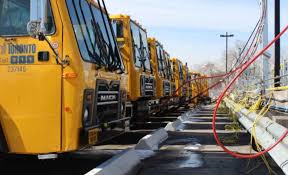
Breaking News
 CME Alert: Major Margin Hikes Across All Precious Metals
CME Alert: Major Margin Hikes Across All Precious Metals
 Mamdani says NYC is facing an unexpected $10 billion projected budget deficit...
Mamdani says NYC is facing an unexpected $10 billion projected budget deficit...
 JOBY WEEKS: A CASE OF INJUSTICE, "HE NEEDS TO BE FREE"
JOBY WEEKS: A CASE OF INJUSTICE, "HE NEEDS TO BE FREE"
Top Tech News
 Critical Linux Warning: 800,000 Devices Are EXPOSED
Critical Linux Warning: 800,000 Devices Are EXPOSED
 'Brave New World': IVF Company's Eugenics Tool Lets Couples Pick 'Best' Baby, Di
'Brave New World': IVF Company's Eugenics Tool Lets Couples Pick 'Best' Baby, Di
 The smartphone just fired a warning shot at the camera industry.
The smartphone just fired a warning shot at the camera industry.
 A revolutionary breakthrough in dental science is changing how we fight tooth decay
A revolutionary breakthrough in dental science is changing how we fight tooth decay
 Docan Energy "Panda": 32kWh for $2,530!
Docan Energy "Panda": 32kWh for $2,530!
 Rugged phone with multi-day battery life doubles as a 1080p projector
Rugged phone with multi-day battery life doubles as a 1080p projector
 4 Sisters Invent Electric Tractor with Mom and Dad and it's Selling in 5 Countries
4 Sisters Invent Electric Tractor with Mom and Dad and it's Selling in 5 Countries
 Lab–grown LIFE takes a major step forward – as scientists use AI to create a virus never seen be
Lab–grown LIFE takes a major step forward – as scientists use AI to create a virus never seen be
 New Electric 'Donut Motor' Makes 856 HP but Weighs Just 88 Pounds
New Electric 'Donut Motor' Makes 856 HP but Weighs Just 88 Pounds
 Donut Lab Says It Cracked Solid-State Batteries. Experts Have Questions.
Donut Lab Says It Cracked Solid-State Batteries. Experts Have Questions.
Toronto Garbage Trucks Will Soon Be Powered by Biogas From the Very Food Scraps That They Collect

All of the garbage trucks in Toronto will soon be powered by the biogas produced from the very trash they collect.
Toronto is set to be one of the first cities in North America to launch such an initiative, thanks to the their newly-constructed Dufferin Solid Waste Management Facility.
Starting in March 2020, the city's fleet of garbage trucks will collect all of the organic waste and flood scraps from the Toronto Green Bins and bring them to the facility for processing. The facility will then use anaerobic digesters to capture all of the biogas produced by the waste and transform it into renewable natural gas (RNG).
After the scraps are dropped off at the facility, the city's 170 garbage trucks can then immediately fill up their fuel tanks with RNG before heading out to collect more trash.
According to city officials, "RNG is also less expensive and more environmentally friendly than fossil fuels such as diesel. Once injected into the natural gas pipeline, it can be used to fuel vehicles or provide electricity or heat to homes and businesses.
"RNG generated from food waste is actually considered carbon-negative, because the reduction in emissions by not extracting and burning petroleum-based fuel, and the emissions avoided by not sending organics to landfill, exceed the direct emissions associated with the production and use of RNG."
Reports say that 10% of greenhouse gas emissions in Toronto are generated by garbage, primarily food waste. Now, estimates suggest that the Dufferin facility will produce approximately 3.2 million cubic meters of RNG per year, which will save roughly 9,000 tonnes of CO2 from ending up in the atmosphere.

 It's not a conspiracy anymore
It's not a conspiracy anymore

